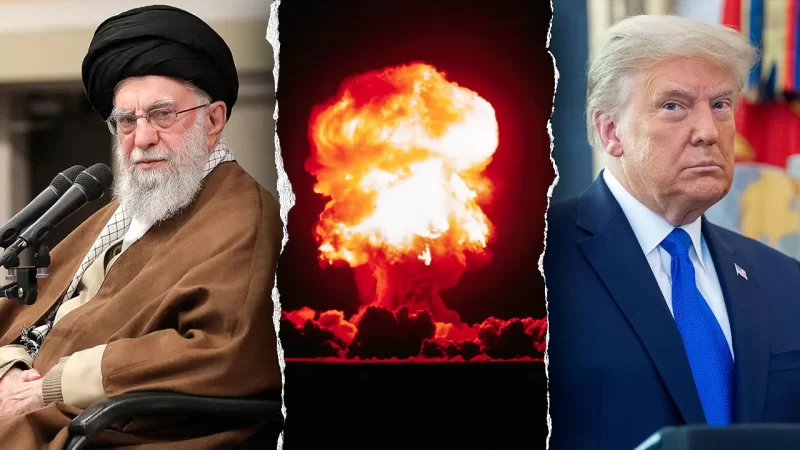
President Donald Trump is pushing for direct nuclear talks with Iran this Saturday in Oman, a move that’s raising eyebrows given the historically tense relationship between the two nations. Tehran, however, is reportedly insisting on indirect negotiations, mediated through a third party. This public disagreement highlights a complex game of leverage, with both sides strategically maneuvering to gain the upper hand before formal talks even begin.
Iran expert and senior fellow at the Foundation for Defense of Democracies, Behnam Ben Taleblu, suggests that the current public posturing is merely a negotiating tactic. Both the White House and the Iranian government are carefully managing their image: the U.S. wants to appear dominant, having forced Iran to the table, while Iran seeks to avoid the appearance of being pressured into negotiations. This is particularly sensitive given the deep-seated animosity between Trump and the Iranian regime, fueled by events such as the 2020 assassination of General Qasem Soleimani and an alleged assassination attempt against Trump himself.
Iran’s leverage is undeniable. Despite facing stringent U.S. sanctions, they’ve made significant progress in uranium enrichment, nearing weapons-grade levels, and have advanced their missile program. Their close ties with Russia and China further complicate the situation, adding uncertainty to any Western attempts at disarmament.
However, the U.S. also possesses considerable leverage. Beyond the potential for increased economic sanctions and the threat of “snapback” mechanisms under the UN Security Council, the possibility of military action looms large. Trump recently issued a stark warning to Iran, threatening military action if they fail to negotiate. The ticking clock of expiring JCPOA-era sanctions in October 2025 further adds pressure to the situation.
Ben Taleblu notes that Iran’s current engagement is likely a calculated move to buy time and avoid a potential military strike, possibly using negotiations as a shield against Israel. Trump has suggested that Israel, rather than the U.S., would lead any such military action, a statement that could be another element in the ongoing strategic maneuvering. A holistic strategy that goes beyond simply nuclear non-proliferation, addressing the broader ‘Axis of Resistance,’ is crucial, according to Taleblu, along with a robust ground game to counter the regime through various means.
The stakes are incredibly high. The success or failure of these talks will have profound consequences for regional stability and global security. The coming days will be critical in determining whether a breakthrough can be achieved or whether the situation will escalate further.










